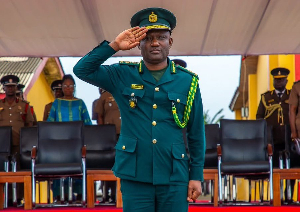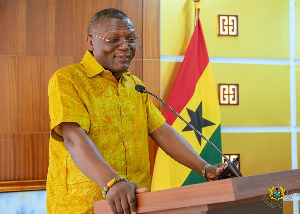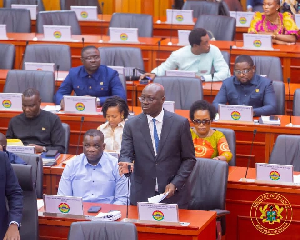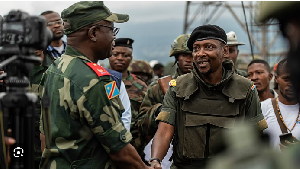What should be done with the thorny question of Arabized North Africa?
That has been one of the perennial questions for Pan-Africanists! There is no doubt that the question of Arab North Africa, indeed, remains a contentious issue, a nagging paradox with uncertain future, in the discourse on the unitary continentalization of Africa’s strategic interests and development priorities. Put otherwise, the question, in and of itself, probably represents one of the most important niggling veridical paradoxes in the political idiom of post-colonial discourse. What is the solution?
Dr. Shadrack Gutto, a Kenya-born South African legal scholar, an international law professor (University of Witwatersrand), and a Fellow at the Molefi Kete Asante Institute (Pennsylvania, US), argues for the exclusion of the largely Arabized north of Africa from any geopolitical considerations for the unitary continentalization of Africa. His fundamental thesis is that the allegiances of Arab North Africa lie largely with the Arab League. Yet others also say with Islam and Mecca. Though these assertions might sound a bit simplistic on the surface, the fundamental thrust of the arguments and their underlying assumptions are complicated, to say the least. North Africa has not always been what it is today, as Gerald A. Parreira correctly notes in his article "Libya, Getting It Right: A Revolutionary Pan-African Perspective," March 2, 2011, Black Agenda Report:
“MANY YEARS AGO, QADDAFI TOLD A LARGE GATHERING, WHICH INCLUDED LIBYANS AND REVOLUTIONARIES FROM MANY PARTS OF THE WORLD, THAT THE BLACK AFRICANS WERE THE TRUE OWNERS OF LIBYA LONG BEFORE THE ARAB INCURSION INTO NORTH AFRICA, AND THAT LIBYANS NEED TO ACKNOWLEDGE AND PAY TRIBUTE TO THEIR ANCIENT AFRICAN ROOTS. HE ENDED BY SAYING, AS IS PROCLAIMED IN HIS GREEN BOOK, THAT ‘THE BLACK RACE SHALL PREVAIL THROUGHOUT THE WORLD.’”
These observations render the racialized political geography of North Africa a problematical subject matter. That is not to say they are not rooted in the facts of history, anthropology, Egyptology, linguistics, archeology, paleoanthropology, and allied academic disciplines (see “Black Genesis: The Prehistoric Origins of Ancient Egypt (Thomas Brophy & Robert Bauval); also see the works of Theophile Obenga, Cheikh Anta Diop, Molefi Kete Asante, Ivan Van Sertima, Josef Ben-Yochannan, Louis Leakey and Richard Leakey). That is beside the point, however. The important point for us is that Parreira argues in the pages of the same Black Agenda Report article that the opposition to Gaddafi and his calls for African unification had many parts to it. He emphasizes the political and ideological friction between Pan-African forces on the side of Gaddafi and "reactionary racist Libyan Arab forces" in North Africa. The latter rejected Gaddafi's vision of an integrated Africa in which Libya remained a member. According to Parreira again, those reactionary racist forces would rather have wanted to see Libya join forces with the European Union (EU) and the Arab World than with Africa.
Clearly, there is an element of conjunctional approbation to Parreira's radical critique of the afore-referenced veridical paradox and of Prof. Gutto's theory of exclusionary geopolitics. On a more fundamental note, the element of conjunctional approbation is compounded by the sporadic distribution of Arabs across Mauritania, Mali, Sudan, Chad, and other parts of Africa outside the familiar political geography of Arab North Africa. How, then, does Prof. Gutto's exclusionary theory of geopolitics deal with this politically sensitive yet convoluted inquest? Having weighed all the facts, the practical merit of Gaddafi's political calculations threatened to cut off Africa's dependency on the West, invalidate the exploitative character of tropical dependency, and restore Africa's lost developmental, economic, and industrial sovereignty. This corpus of core ideas, for all intents and purposes, was essentially Nkrumah’s. There are others from around the world who embraced that vision!
Thus, the Senegalese scholar Dr. Cheikh Tidiane Gadio, a former Senior Minister of Foreign Affairs, is one such thinker. He correctly notes in the preface to Dr. Mazama's book "Africa in the 21st Century": "Indeed, Julius Nyerere of Tanzania commented late in his life that had the presidents of other nations on the continent had the vision that Nkrumah possessed the continent would have arrived at the point of national unity much earlier." Some commentators have correctly called this "The Confessions of Julius Nyerere." Like the erstwhile Francophone countries of Africa, the Arabized north of Africa does not seem to share Nkrumah’s vision of strategic and tactical collaboration against a common threat. Yet Dr. Gadio's remarks are equally not, however one looks at it, a singular indictment of the failure of Nkrumah's peers and succeeding generations of African leadership to identify with his vision. In fact Dr. Gadio’s is a rhetorical generality quite representative of the political landscape of African leadership, Nkrumah and a few others notwithstanding.
We are dealing with the power of statistic inference as regards the general verdict of political critique! One only has to closely read the corpora of Nkrumah's writings and speeches to appreciate the profundity of his prophetic calculations and the fact that many have come to pass. Most of these prophetic calculations are still here with us today nonetheless, anyway. More important, Nkrumah clearly understood why the British became an ally of America, her former colony, but chose a different path toward a convenient accommodation of neocolonial relationship with Ghana and those of her other African colonies. His books "Neo-colonialism: The Last Stage of Imperialism" and "I Speak of Freedom" represent a powerful indictment of this forced schedule of unequal dichotomy in economic, race and international relations. It is in these unequal relations that the comparative deficits of Africa’s development priorities are made manifest!
Apparently there is no syntaxis of developmental focus among many of the strains of African leadership. The political dogma of ideological misattribution has become a strategy of paradoxical evasion in the critique of visionary politics, thus characterizing the intellectual locus of many an enemy of Nkrumah and of progressive African leadership in general. Meanwhile, we should point out to those trying to make cheap careers out of inscriptively overemphasizing Nkrumah's ouster from political office to his otherwise sustained criticism of America's, and more generally Western, neocolonial policies towards Africa, to also note that Fidel Castro, for instance, was even more sweepingly critical of American foreign policy than Nkrumah probably ever was. Yet every American president from John F. Kennedy to Barack Obama worked closely with the Castro Government, culminating in a political entente with the Communist island.
Part of the Western animus toward Nkrumah’s leadership had stemmed from his cultural, political, and economic pragmatism. Declassified US documents clearly mention Pan-Africanism as one of the primary reasons for Western hatred of Nkrumah. As well, a 2012 French Defense Report captures for us Western apprehension over Pan-Africanism: FRANCE VIEWS PAN-AFRICANISM AS A THREAT TO WESTERN INTERESTS IN AFRICA IN GENERAL AND FRENCH INTERESTS IN AFRICA IN PARTICULAR.” Why is Pan-Africanism a threat to the West and not Africa? Why are Western strategic interests more important than Africa’s? Is the natural wealth of Africa Africa’s or the West’s? Who has more say over how Africans decide to use their natural wealth: The West of Africans? These are strategic and tactical inquests of the praxis of Nkrumahism and Pan-Africanism, the latter two bordering on the moral dimension of political realism. In the main, Molefi Kete Asante is right to describe Nkrumah as "a prophet of reality."
The “prophet of reality” was an epitome of Pan-Africanism. Writer Kirsten Holst Petersen also writes: "KWAME NKRUMAH WAS THE SINGLE MOST IMPORTANT THEORETICIAN AND SPOKESPERSON OF THIS DECADE...HUTCHINSON, A SOUTH AFRICAN NATIONALIST, CAPTURED GHANA’S CENTRAILITY TO THE ERA WHEN HE CALLED HIS BOOK, ITSELF AN ACCOUNT OF HIS LIFE AND HIS ESCAPE FROM SOUTH AFRICA, SIMPLY, ‘ROAD TO AFRICA.’ ALL THE CONTINENT’S NATIONALIST ROADS OF THE FIFTIES LED TO KWAME NKRUMAH’S GHANA. EVERYWHERE ON THE CONTINENT, THE FORMER COLONIAL SLAVE WAS BREAKING HIS CHAINS, AND SINGING SONGS OF HOPE FOR A MORE EGALITARIAN SOCIETY IN ITS ECONOMIC, POLITICAL AND CULTURAL LIFE AND NKRUMAH'S GHANA SEEMED TO HOLD THE TORCH TO THAT LIFE!" (see the book "Criticism and Ideology").
Where has the “songs of hope” gone to? Why has the former colonial slave broken his chains only to tie it around his mind? Where is the whereabouts of Nkrumah’s “torch”? These are the missing links we discover in the political trajectory of Pan-Africanism. In other words, the negation of Africa’s developmental challenges and the paradox of her political characterology require active resolution in the political idiom of Pan-Africanism. Garth Sundem, another author, notes: "IT IS THE JUBILANT GOLD COAST, AND ITS HERO [KWAME NKRUMAH], THAT SOME OF AFRICA’S AWAKENING MILLIONS SEE THE EARLY LIGHT OF FREEDOM DAWNING OVER THE CONTINENT.” This definitional clarity of pre-eminent moral leadership is what the continent of Africa generally lacks today. Evidently, Africa's decolonization owes a lot to Nkrumahism and even more significantly, that practical success probably represents Nkrumah’s greatest bequest to the African world. No African leader before and after him deserves that credit.
We may then hazard that the fundamental solution to the paradox of underdevelopment is continuity, not discontinuity, from the political string theory of Pan-Africanism. This we believe should override any social proclivity towards intellectual and political ennui in the application of Pan-Africanism and Nkrumahism to development problems.
We are referring to the question of political statistic in relation to the seeming universal practical success of Pan-Africanism during the epoch of decolonization and in the immediate dispensation following it. The lingering hiatus of intellectual and political inaction on the part of African leadership to address itself to the moral authority of progressive ideas assumes radical moments of intrusive planation within public consciousness and in the exercise of political consciousness. As it stands the African world today grapples with Nkrumah's vision, as well as with his confirmed and yet-to-be-confirmed auguries, as it were than those of any other single African thinker in the entire historicist audit of Africa's byzantine checkered history. This statement is neither an embellishment nor exaggeration. It speaks to a lack of political consciousness or conscientization in the moral calculus of African leadership rising up from the nadir of political acedia to a height commensurate with the apogee of visionary politics. The situation is not unlike a massive warp or flaw in the category theory of conscientious political thinking. This is compounded by the intrusive universalism of the Abilene paradox in African politics!
We do however concede that conscientious political thinking, including the framology of human psychology, most times situates itself beyond the uncertainty quantification threshold of material reckoning, but that should not constitute itself into an emotive alibi for political inaction. Our primary contention, therefore, relates to the lack of continuity in the exercise of the gift of political consciousness and that has serious practical ramifications for development strategies, the situational urgency of imaginative thinking, and the objectification of imaginative thinking, even as we cannot divorce the latter from statistical thinking. Failure to effectively manage the systemic framology of uncertainty in the exercise of political consciousness constitutes a normative ethos in the political practice of thinking vis-à-vis the Eurocentric bias of post-colonial African politics. Yet uncertainty is inevitable in any human undertaking, even in the practice of creative, critical, and analytic thinking. This is where human fallibility usurps the imperial radicalness of mortal consciousness. The unpredictability of man’s mathematical and ontological finiteness is itself a bold expression of the statistical power of uncertainty in the phenomenology of conscious thinking.
Thus, to narrow the margin of error associated with statistical uncertainty in the phenomenology of conscious thinking requires sustained methodological allegiances to the unifying manifold of ideas in the topological space of intellectual productions dictated to by man’s imposing ingenuity. It does matter how this corpus of ideas are contradistinguished from each other in the pursuit of optimal ripostes to human fallibility. The focus is rather on expanding the base of sample space in regard to the statistical motion of variegated ideational productions, so as to improve the quality of the outcomes in all the conceivable range of possibilities on the question of ideational potentiation. Of course, the supremum in the strategic calculus of political thinking should primarily be about the national or continental interest, so too should the corresponding infinum in the strategic calculus of political thinking be about the negation of Eurocentric hegemony, economic imperialism, and bad African leadership. In fact, both the supremum and the infinum can share the space of moral convergence in the critique of African politics and African leadership.
What is more, it is not as if Nkrumah's corpus of ideas is dead or irrelevant to the material challenges and travails confronting today’s world, far from it. What do we mean? A closer look at the United Nation's Millennium Development and Sustainable Development Goals, for instance, reveals astonishing overlaps with the strategic fingerprints of Nkrumah’s development priorities and visionary politics (See Dr. Jeffrey D. Sachs' book "The Age of Sustainable Development" and his essay "Sustainable Development Goals for a New Era," Horizons, Sept. 22 (Autumn 2014), No. 1). Indeed, what Dr. Sachs refers to as "a new era" had already been overtaken and assumed by the progressive history of Nkrumah's vision and forward-looking political conceptualizations. This is what the genius of great leadership is made up of! On the other hand, there is a mathematical element to the astonishing moments of predictive convergences as we see in the special case of Apollonian circles in polar coordinates, geometry, or mensuration. All three categories of spatial configurations require characteristic moments of surgical precision in the framology of questions bordering on the topological habits of infrastructural delineation.
This is exactly where the predictive power of Nkrumah’s imaginative thinking imposes the sledgehammer of adaptable potentiality on progressive leaders and thinkers who are driven to gravitate towards the centripetal merit of his legacy. This was the same instructional legacy that drove Gaddafi to resuscitate Nkrumah’s vision for Africa. Nyerere also argued along the lines that Europeans saw practical merit in Nkrumah’s vision for Africa, to the point where they adapted it, save his Union Government, to the European Union (EU). Africans, on the contrary, underestimate the potential of Nkrumah’s vision for Africa. This represents an irony of laughable proportions. More so not even Wole Soyinka could muster the courage to question Nkrumah’s Pan-Africanist credentials. In other words, Soyinka has great respect for Nkrumah’s Pan-Africanist vision. With Nigerian pre- and post-independence leaders including Nnamdi Azikiwe heaping praises upon Nkrumah’s decolonization efforts for contributing towards their country’s decolonization and eventual political independence, Soyinka has no choice but to accord Nkrumah respect since he is a direct beneficiary of Nkrumah’s leadership and vision for Africa.
Thus, those who seek to dabble in the salacious steam of wild speculations on the range of possible exegetical implications of Soyinka’s play “Kongi’s Harvest” for their own selfish political ends may not have read the vast world of allied literature that tries to explore the deeper meaning of the play. Therefore, those who directly and explicitly conflate the character of President Kongi with Nkrumah may have missed out on the import of contextual criticism. A corpus of multiple character interpretations associated with that character exists in the world of post-colonial African literature and literary criticism, because Soyinka has not said the Kongi character is Nkrumah outside the fictional scope of the play. That is, the play opens itself up to possibilities of multiple interpretations in the absence of the factual congealment of the Kongi character into Nkrumah.
That said, Prof. Biodun Jeyifo, one of Soyinka’s former students, a Harvard University professor of African literature and comparative literature (Caribbean, Western, and African), and arguably the world’s leading authority on Soyinka and his corpus of literary works, has explicitly dealt with the multiple interpretational controversies surrounding “Kongi Harvest” in his influential text “Wole Soyinka: Politics, Poetics, Postcolonialism.” Among other recognitions and acknowledgments, Prof. Jeyifo’s brilliant text won the American Library Association award (2004) for “Outstanding Academic Texts.” In another related context Cosmos Pieterse and Dennis Duerten, two important writers, also interviewed Soyinka on the exegetical location of “Kongi’s Harvest” in post-colonial African politics, among his other works, and included it in their influential text “African Writers Talking.” Those who want to pin down their twisted ideological and exegetical positions on Soyinka and his play, “Kongi’s Harvest,” will learn a great deal when they consult these works.
These two scholarly works bring some closure to the paradoxical characterology of the play the very moment its internal infrastructure lent itself to the problematic of manifold character interpretations.
Of course, there are other influential scholarly works which deal with similar questions. But as it is we will not bother with them here. Neither are we going to explore the multiple obscure exegeses of “Kongi’s Harvest,” for all the necessary facts are captured in those two works! The more important fact to add to the foregoing is that dabbling in wild speculation on such an important matter is not a substitute for historicity or for the “scientific” facts of history. Of course literature has a role to play in society that includes, but not limited to, entertaining, educating, criticizing society for its deficits and extolling its virtues! However, the narrative infrastructure of a novel, a fiction, or a play is merely a reflection of a particular society, family, individual, or whatever, as well as of a particular or unique perspective of the writer whose work is being read or acted out.
But like all human beings, writers, or scholars Soyinka has said things in interviews, public lectures, and books that are not true, correct, historical, or even factual. Ali Mazrui, Soyinka’s intellectual and ideological nemesis, once wrote: “I BELIEVE THAT SOYINKA’S SHORT FACTUAL MEMORY IS PLAYING TRICKS ON HIM…AS FOR SOYINKA’S ASSERTION THAT I ATTEMPTED TO CLING ON IN A PROPRIETY MANNER TO THE OLD ‘TRANSITION’ AFTER HE HAD TAKEN OVER AS EDITOR, THAT HAS NO FOUNDATION IN FACT WHATSOEVER…IF SOYINKA TODAY HAS HIS OLD ‘TRANSITION’ FILES, HE WILL SEE THAT MY LETTER OF RESIGNATION CAME VERY PROMPTLY AFTER HE TOOK OVER AS EDITOR” (our emphasis; see Mazrui’s book “Race, Gender, and Culture Conflict: Debating the African Condition (Ali Mazrui and His Critics),” Vol. 1. Co-author: Willy Mutunga).
Apparently Mazrui was associating Soyinka’s recall memory with a diagnosis of selective omission, although we also have to concede that the latter’s corrective of counterfactual critique of the former’s diagnostic charge of selective omission could have further enriched one of the central pillars of our arguments, Soyinka and our claim that not everything he says is factual or correct. There is nothing amiss here. As a matter of fact memory lapse is a normative component of recall memory and the psychology of personalization. What is more, Soyinka has reflected on happenings that are not representative of every school of thought. Usually his perspective is just one among a number of schools of thought, a perspective that sometimes stand diametrically opposed to other schools of thought. Soyinka’s sporadic public clashes with the late Ali Mazrui constitute one such example. His posthumous critique of Chinua Achebe’s “There Was A Country” is another. After all, Achebe is not here to defend himself and therefore becomes a straw man in the dogmatic landscape of Soyinka’s inquisitional omniscience. It is no secret that Soyinka has had several disagreements with other notable personalities too numerous to mention here.
Aubrey McPhail and Craig McLuckie note in their text “Ken Saro-Wiwa: Writer and Political Activist”: “Wole Soyinka’s memoir, ‘The Man Died: Prison Notes of Wole Soyinka,’ comes across as accessible to all, YET, AS SEVERAL COMMENTATORS HAVE SUGGESTED, SOYINKA, TOO, NEEDS TO DRAW VOICES DISSIDENT TO HIS OWN INTO THE DEBATE AND TO APPLY THE FORMIDABLE INTELLECTUAL GIFTS HE HAS TO FIND AN EQUITABLE AND HONOORABLE ROLE FOR EACH VOICE” (our emphasis).
In one infamous case, for instance, Soyinka fired Robert Serumaga, a member of the editorial board of “Transition,” in what Ali Mazrui described as: “SIMPLY BECAUSE ROBERT HAD THE AUDACITY TO SAY POSITIVE THINGS ABOUT IDI AMIN.” Mazrui then added: “SOYINKA’S HIGH-HANDED METHODS AND EDITORIAL CENSORSHIP WHERE HIS OWN” (our emphasis; ibid.).
Serumaga would later join the liberation army that overthrew Idi Amin after he became disillusioned with Amin’s regime.
That notwithstanding, an exegete or reader of a particular literature needs to understand a writer’s frame or cast of mind, physical environment, ideological leanings, experiences, feelings, social class, beliefs, motivation (purpose) and goals, culture (s), and techniques in order to appreciate that particular piece of literature. As it is every piece of literature is set within a particular framology of culture or cultures and for that reason the axiological exegesis of that piece of literature cannot be correctly executed outside the immediate contextual frames of culturology. One cannot equally do so through formalism either, where external influences are severed from the context of a writer’s work. Acquiring the methodology of literary criticism, sociology of knowledge, deconstruction, hermeneutics, structuralism, and literary theory may also put a reader in a better frame of mind to evaluate the axiological exegesis of a piece of literature.
That is what literature is fundamentally all about, that is answering existential questions about the human condition. Yet we cannot exclude the statistical uncertainty of the phenomenology of conscious thinking in the constructive framology of a piece of literature. This is likely to happen if that piece of literature under investigation is a work of fiction which, among other things, is not backed up by a parallel work of non-fiction that directly addresses the substantive inquest of factual evidentiation. Still, a work of fiction cannot totally be conceptualized devoid of the internal infrastructure of factual evidentiation. This is a necessary conditionality to satisfy when the intrinsic strength or weakness of a piece of literature falls under the radar of exegetical criticism. The fact of the matter is that critics and lay readers can only speculate upon the “true” meaning of a given text of literature. It is however up to the author who must, above all, unmask the true denotation of his or her work for his or her readership.
Unfortunately, Soyinka has refused to provide any authoritative closure to that standing inquest of public curiosity, thus leaving public curiosity hanging in the doldrums of arrant wonderment and speculative meandering. More important, it is not a questionable practice in the fields of literary theory and literary criticism that suspense adds layers of emotive quality to the axiological and aesthetic exegesis of a piece of literature. Further, Soyinka’s deployment of obscure imagery, highfalutin symbolism, allegorical pathos, and the arcane language of cultural aesthetics (erudite vocabulary) may have cast a pall of nebulous shadow over the precise exegetical location of “Kongi’s Harvest” in the vast corpora of post-colonial African literature and politics.
It is not too farfetched, then, to assert that Soyinka’s methodological fusion of erudite vocabulary, metaphysical allegory, and elements of dramaturgic surrealism complements the intra-textural complexity of his plays.
Thus literary semantics or philosophical semantics as it relates to a given writer’s work of literature becomes the province of that writer. It is why Dr. Molefi Kete Asante has to travel around the world, appear on radio and television, author books and scholarly essays, write articles for the print media, and found an international think tank to promote as well as deal with the politically-motivated distortion of his scholarly productions, particularly the theory of Afrocentricity and its application to the problems of the African world. We see this too in the seething stream of conscious effort flowing towards the distortional destination of Nkrumah’s legacy, as well as a Machiavellian circulation of canards about his work, his person, and his larger vision for the world.
In any case let us assume, for the sake of argument, that President Kongi is indeed Nkrumah. That will mean that Soyinka fails in the areas of character formation and character development as far as the direct correlation between President Kongi and Nkrumah is concerned. We make this claim on the basis of declassified US and British intelligence documents, critical biographies of Nkrumah, Nkrumah’s corpus of writings, scholarly publications on his vision and legacy and political thought, and so on. Hindsight is the critic here. The contributory collaborations of external intelligence and its local agents in making various assassination attempts on Nkrumah and overthrowing his democratically-elected government, throwing bombs at him and others close to him, and terrorizing and killing children and women and men to the character formation and character development of President Kongi is hardly a contextual centerpiece of “Kongi’s Harvest.” That and other reasons give us cause to interpret or view the play essentially as a composite characterization of much of post-colonial African leadership and politics.
Again, this is what fiction is fundamentally about: Attempting idealization of “truth.” But idealizing “truth” is by no means synonymous with the totality of contemporary or historical truth. In other words idealizing “truth” is no less an exercise in academic pretensions to a semblance of truth. Admittedly “a semblance of truth” and “truth” are not necessarily or even similar let alone identical. It turns out the question of situational obviousness and factual evidentiation do not necessarily make for the material conditional linking Nkrumah to “Kongi’s Harvest.” It is in this context that one cannot also turn Soyinka’s abstract criticism of political leadership into the premiership or presidency of a country, say Nigeria. Soyinka will rather go after the Oxford Poetry Chair than after nation-building and statecraft, for it is far easier writing poetry than being involved in nation-building and statecraft.
More than anything else he can capture the political rhythm of Boko Haram and the sect’s unconventional terrorism in his erudite metrics of poetic candor, but as it should be expected that is far from actively engaging Boko Haram politically and strategically, let alone deploying the military against it and even eradicating it. Soyinka has been blacklisted by Boko Haram. Can anyone blacklisted by Boko Haram and constantly threatened with murder imagine how Nkrumah’s enemies blacklisted him and went on a campaign of bombing him, assassinating him, and attempting to destroy the new nation, all because the masses rejected the Opposition leadership at the polls and took to Nkrumah and his ideas? Granted, there is no denying the fact that Soyinka’s cogent defense of removing the Boko Haram threat recalls the political ethics of Niccolo Machiavelli, in which the greater good trumps the potential greed and divisive tendencies of political parochialism.
There is no doubt that “good” politics cannot exist without the paradox of dirty hands, the latter concept captured in Jean-Paul Sartre’s play “Dirty Hands” (see also Anthony Trollope’s novel “The Way We Live Now” and Michael Walzer’s essay “Political Action: The Problem of Dirty Hands”). The right of self-defense, security, and national interest underlie the thrust of Soyinka’s moral suasion against the firepower of political terrorism mounted against the state, the instruments of state power, and society at large! In the main, Soyinka correctly acknowledges the potential of jawboning to contain the Boko Haram threat in addition to those posed by Al-Shabab and others. Machiavelli explicitly and implicitly said it all as part of his realistic political philosophy and in his conceptualization of political ethics!
In the end Machiavelli and Soyinka both put a premium on political realism, but perhaps less so of Soyinka. And there is a very good reason for this, in that, unlike Soyinka, Machiavelli was a politician and a diplomat. He also commanded an “army” in inter-city-state wars among other important responsibilities of the high caliber of political officialdom. This to an extent made Machiavelli a political empiricist or realist, and Soyinka a political idealist! Political realism and political idealism are not the same. Machiavelli was one of the few influential ancient political theorists whose writings cogently established the distinction. The internationalist Soyinka, on the other hand, comes to the behavior of the post-colonial nation-state discourse from an angle of detached abstraction and reification, though we will quickly add that his deep political connections to state bureaucracy has enriched his methodological acumen of political criticism vis-a-vis the Nigerian state and its leadership.
We shall return…
Opinions of Monday, 8 June 2015
Columnist: Kwarteng, Francis














